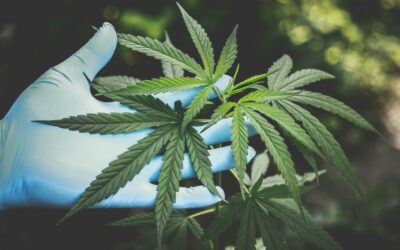The biggest myth about libido, sexual desire or sex drive, is that you should always be feeling the “urge” to have sex. As soon as that “urge” is gone, we start to wonder whether something is wrong with us.
Is it true? Is libido a sexual drive that is ingrained in us for survival? No.
Is it okay that there’s a time and a place for sex in our lives? Yes.
Let me explain why.

1. You don’t need sex to survive
If someone took away your access to food and water, you would panic. You know that you need those things in order to survive. If you don’t get them after a certain amount of time (only a few days if you had no access to water), then you would die.
You need food and water to survive. Sleep is the same. A human can only go so long without sleep before developing hallucinations, dementia and other forms of brain damage.
These are all fundamental human requirements. Sex is not. You will not die if you go without sex for any amount of time, even the rest of your life.
2. If you had a sex drive, then it would function similar to hunger or thirst.
If you had a sex drive, it would happen spontaneously, without reason. This kind of sexual desire is incredibly rare. There is almost always a trigger for sexual desire, whether you realise it or not.
There is almost always a trigger for sexual desire, whether you realise it or not. Share on XMaybe you walked passed an attractive person or you saw two people kissing on TV. Something triggered a sexual context in your brain.
But what about random erections?
Those seem to happen spontaneously without thinking about sex at all. For example, immediately when you wake up, you discover you or your partner has an erection. Some people can even get erections when they see their partner cry!
This is why it’s important that you know about arousal non-concordance.
Arousal non-concordance is when your body shows signs of arousal that don’t match up with your subjective feelings of being “turned on”. And it can work both ways.
You can get an erection, or have lots of vaginal lubrication without feeling like sex. It’s like there’s a disconnect between your brain and body.
And it can work the other way, you can be very turned on and ready for sex but have no vaginal lubrication or an erection. This is a normal phenomenon.
That’s why verbal consent is so important. You can’t tell whether your partner consents to sex just because they have and erection or lots of vaginal lubrication. The only thing that matters is whether the mind is on board.
You can't tell whether your partner consents to sex just because they have and erection or lots of vaginal lubrication. The only thing that matters is whether the mind is on board. Share on X3. Responsive desire is normal and healthy.
Responsive desire isn’t inferior to spontaneous desire is any way. It is how 90% of women experience desire, and 30% of men experience desire. It’s the norm.
Responsive desire isn't inferior to spontaneous desire is any way. It is how 90% of women experience desire, and 30% of men experience desire. It's the norm. Share on XKnowing this, if we rely on waiting for that “urge” to have sex, we could be waiting a very long time. Especially when you have to take into account that BOTH partners have to feel the desire at the same time.
If you never experience an “urge” to have sex, there is nothing wrong with you. What I would be concerned about is if you never get turned on even after you and your partner have tried pushing all your buttons, and/or you don’t experience pleasure during sex.
We forget that we can experience sexual pleasure with our partners, experience them as sexual beings, and share intimacy, even if we don’t necessarily feel “horny”.
You can read more about responsive desire and how it works HERE.
In Summary
Sexual desire isn’t a drive. You don’t need sex to live. So waiting for that “urge” or desire to just magically kick in out of nowhere is a waste of time. Sexual desire needs to be triggered, to be cultivated.
Most of the time sexual desire occurs in response to certain types of stimulation or contexts. So discovering what kind of stimulation and contexts get you turned on is key to experiencing sexual desire more often.
At the end of the day, the most important thing is that you’re enjoying the sex you’re having. Take the focus off of trying to crave sex all the time, and focus more on pleasure and connection.
If you enjoyed this post and want more from where that came from, my Libido Masterclass: 4 Steps To Getting Your Spark Back (and having more sex!) is open for enrollment. In this masterclass, you will learn how your libido works and what you can do to start having more sex again. You’ll never look at sex the same way again!






0 Comments